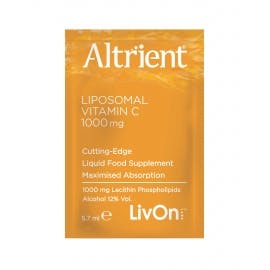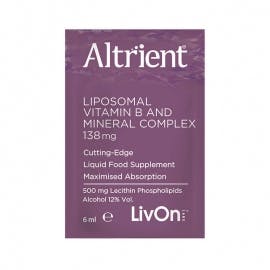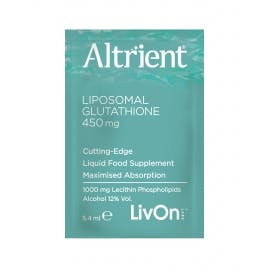Sports Recovery – The 5 Golden Rules
So, your major sporting event is over – Congratulations! You’ve reached your goal, possibly met or even exceeded your targets and should quite rightly be basking in the glow of success.
What happens next?
Undoubtedly a lot of hard work and training went into getting you over the finishing line, but now is the time to focus on recovery.
You can expect it to take up to three weeks for your body to return to normal after the strain of competing in any kind of ultra-endurance exercise.
Insufficient recovery may mean more injuries and can result in longer lasting immune dysfunction. Studies show that elite athletes are more vulnerable to minor illnesses such as upper respiratory tract infections.
5 Golden Sports Recovery Rules
Before you rip off your training kit and slide into a hot or icy bath make sure you follow the 5 golden recovery rules…
1. Eat
After prolonged exercise, your body will have depleted all the glycogen (sugar) stored in your liver and muscles which need replacing. This is especially important if you are regularly performing endurance exercise or trying to build muscle.
If you don’t replenish your carbohydrate stores you’ll end up exhausted, lethargic and unable to train on successive days. Ideally, aim to eat around 50-100g carbs immediately after the event and then again 2 hours later until your normal eating pattern resumes.
It pays to be organised - plan ahead and bring some carbohydrate-rich snacks. Try these:
• 500ml fruit juice
• 3 medium pieces of fruit
• 3 muesli bars
• 3 rice cakes with jam or honey
• A cup of thick veggie soup with a large roll
A lack of appetite is normal straight after an event. If this happens opt for a carb rich fruit smoothie or milkshake which will also quench your thirst and replace important electrolytes.
2. Rehydrate
Normally you don’t have to think about maintaining your fluid levels, thirst and urine loss takes care of that. However, under conditions of heightened physical stress, this may not be enough to re-hydrate sufficiently, so remember to keep drinking!
Sweetened drinks are ideal and can go towards your carb intake. Choosing fruit juice would provide the much-needed sugar and is a healthier option.
Replacing sodium lost through sweating is equally important. Studies show that chocolate milk is an ideal post workout recovery aid and is much easier to drink than typical sports drinks.
It also has the right ratio of carbs to protein and provides the important electrolytes sodium and potassium. Alternatively, you could make up a milk smoothie with added fruits to get an equally good balance.
3. Move
It’s important to resist the urge to collapse immediately after a major sporting event. In the first 10 to 15 minutes afterwards, you need to engage in a little low-intensity exercise to warm down and make the transition from peak exercise towards resting conditions.
A gentle walk or swim with some stretching exercises keep your circulation moving which helps to transport nutrients and remove waste products. This is vital for repairing muscles, combatting stiffness and removing remaining lactic acid from your body. Try to keep this up over the following few days to maximise the benefits.
4. Repair
Exercise triggers a release of free radicals that can promote muscle loss and cause considerable oxidative damage to your body if not neutralised by antioxidants.
A repair strategy that deals with oxidative stress and aims to replenish fluid, electrolytes, carbohydrate and essential nutrients is the key to a quick recovery.
Keep these in mind:
• Vitamin C
It is well-established that prolonged exercise affects immune function and that vitamin C is responsible for a number of immune supporting benefits.
According to research not only does vitamin C speed up muscle strength and recovery it also reduces the incidence of post-race upper-respiratory tract infection and delays the onset of muscle soreness.
• Glutathione
The antioxidant systems in your body work hard to counter oxidative stress, however inadequate antioxidant reserves can result in inflammation and tissue degradation. Endurance athletes have been shown to need greater antioxidant protection than moderate exercisers.
It’s important to choose antioxidants that offer maximum protection. In particular, glutathione which is one of the principal antioxidant enzymes found in muscle fibres.
This powerful antioxidant helps to regenerate other key antioxidants such as vitamin C and E and research shows it plays a critical role in regulating free radical activity in athletes.
• B Complex Vitamins
One of the consequences of extreme exercise is extreme fatigue! To boost flagging energy levels it’s vital to top up with a B vitamin complex as these are essential for supporting energy metabolism, especially when blood sugar levels are out of kilter and glycogen stores are low.
Any kind of stress emotional or physical also places a high demand on the adrenal glands which utilise the B vitamins, diverting them away from energy production.
Make sure you choose liposomal options of these nutrients to ensure you get greatest absorption and better benefits.
Why is this important?
Thanks to a scientific breakthrough in the 1970s we can now deliver nutrients directly to the cells using what is called liposomal technology.
This unique manufacturing process produces cleverly designed phospholipid bubbles called liposomes. The phospholipid membrane is very similar to our own biological membranes which are designed to protect the cell's contents.
Microscopic liposomes are loaded with soluble nutrients which are then protected from the digestive juices and transported quickly into the blood stream which moves them directly to the cells that need it.
So instead of passing the nutrients out as waste, you get them where you need it most, your cells!
5. Rest
Last but not least!
The greater the training and exercise intensity, the greater the need for rest and sleep. Your body has an amazing capacity to repair itself if you allow it time to recover. During sleep your body produces growth hormone which is largely responsible for growth and repair of tissues, helping your muscles to recover.
Time for a snooze?
Written by Jacqueline Newson BSc (Hons) Nutritional Therapy
References
1. Burke L and Deakin V. (2002)Clinical Sports Nutrition . McGraw-Hill: Australia.
2. Clarkson P and Urso M.Oxidative stress, exercise, and antioxidant supplementation. Toxicology 2003; 189, 1-2: 41-54.
3. Fly AD et al. Chocolate Milk as a Post-Exercise Recovery Aid. IJSNEM 2006; 16 (1); 78-91.
4. Gleeson M. Immune function in sport and exercise. Journal of Applied Physiology 2007; 103, (2): 693-699.
5. Hagerman FC, Hikida RS et al. Muscle fiber necrosis associated with human marathon runners. J Neurol Sci. 1983; 59(2):185-203. [Abstract]
6. Houltham et al. Dietary thiols in exercise: oxidative stress defence, exercise performance and adaptation. Journal of the international Society of Sports Nutrition 2017; 14:12.
7. Jackson M and Powers S K. free radicals play a crucial role in activating degradatory pathways leading to loss of muscle mass. Physiol Rev. 2008; 88(4): 1243–1276.
8. Lieto C (2013).The Truth about Extreme Exercise, Oxidative Stress, and your Health. https://www.completehumanperformance.com/exercise-oxidative-stress/. [accessed 12.5.17.]
9. Mc Collough P et al. Potential Adverse Cardiovascular Effects From Excessive Endurance Exercise. Mayo Clin Proc. 2012; 87 970: 704.
10. Roberts J. (2013). Sports Nutrition for Active Living and Performance. Another Country Publishing: UK.




.jpg?auto=format&q=45&w=262&trim=auto)
.jpg?auto=format&q=45&w=262&trim=auto)
